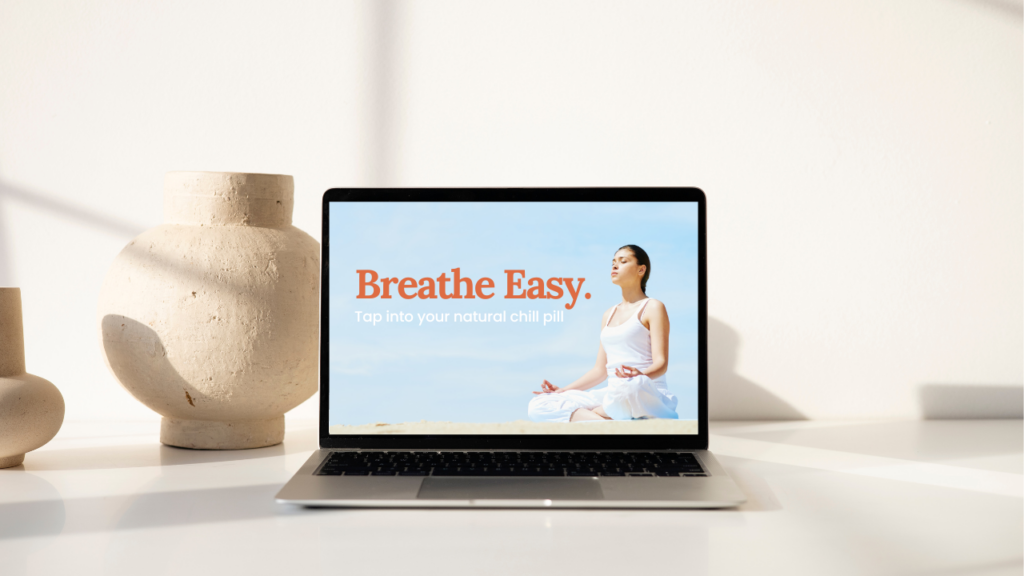Feeling Stretched Too Thin? You’re Not Alone.
Hey, I see you. You’ve got a million things on your plate—work, family, social obligations, fitness, that side hustle you’re passionate about. And no matter how much you check off your to-do list, there’s this constant feeling of… exhaustion. You wake up already stressed, your mind running a hundred miles an hour, and somehow, it still feels like it’s never enough. Sound familiar? Yeah, I thought so.
If you’re a high-achieving woman balancing career, relationships, personal growth, and wellness, you probably know the heavy burden of stress all too well. You’re ambitious, driven, and constantly striving to reach new heights, but instead of feeling fulfilled by your successes, you’re often left feeling exhausted, anxious, and overwhelmed.
Even the little things, like choosing what to wear or dealing with your kid’s 10th sock swap, can feel like the final straw. And there’s a reason for that—it’s called stress. And despite your best efforts to maintain balance, life can feel like it’s spiraling out of control.
Believe me, you’re not alone. September is wild for me too. Between work, yoga classes, homework for my trainings, signing up for a choir (yep, I did that!), coaching clients, and launching my Breathe Easy course, my schedule is jam-packed. On top of that, I’m catching up with friends, squeezing in physio and doctor’s appointments, prepping for the neighborhood party, and—oh right—housework.
So yeah, I get it. Life is a lot.

Why You’re Feeling Frazzled
It’s not just that you’ve got a lot on your plate (though let’s face it, your plate is more of a buffet). Stress has always been part of the human experience for a reason. It’s actually your brain making you feel this way. And it’s not your fault—your brain is wired to react this way because it thinks you’re in danger. Yep, seriously.
Back in the day, our ancestors dealt with life-threatening situations regularly. Stress meant running from predators, and your body’s response was to trigger fight-or-flight mode—heart racing, muscles tensed, mind on high alert, ready for action.
Fast forward to now. Instead of wild animals, we’re dealing with looming deadlines, social media pressures, and endless modern-life demands. But your brain can’t tell the difference. Whether it’s a tiger or an email notification, it reacts the same way: PANIC MODE.
This constant state of stress wreaks havoc on your brain and body. A 2017 study published in the EXCLI Journal found that prolonged stress causes structural changes in your brain—specifically in the hippocampus, which is responsible for memory and learning. Chronic stress shrinks this part of your brain, making it harder to think clearly, remember things, and process emotions. In short: stress is literally messing with your head.

A Little History of Stress
Believe it or not, scientists have been studying stress for a long time, and they’ve known for centuries that keeping a balance is critical for survival. In 1865, French physiologist Claude Bernard observed that life depends on maintaining a stable internal environment, even as the world around us changes. He called this balance homeostasis—a term later popularized by Walter Cannon in 1929. Homeostasis is your body’s way of keeping everything in check.
But here’s the thing—when you’re under constant stress, that balance is thrown off. Enter Hans Selye, who, in the 1950s, coined the term “stress” to describe the effects of anything that threatens your internal stability. While stress evolved as a survival mechanism, Selye warned that prolonged exposure to it could lead to tissue damage and disease. So, if you’ve been feeling like your body is constantly on edge, that’s your modern brain reacting to all the everyday stressors—and it’s not good for your long-term health.

The Problem Isn’t Just External—It’s Internal
While external pressures like work deadlines, family responsibilities, and social expectations certainly contribute to your stress, much of it comes from inside your mind. Here’s the surprising truth: a significant portion of the stress you experience is triggered by your thoughts.
Your brain is wired to focus on negative experiences—thanks to something called the “negativity bias.” This was helpful for survival back in the day, but now, it causes you to fixate on fears, self-doubt, and what-ifs. Whether you’re worrying about a work presentation or feeling like an imposter, your brain triggers the same stress response as if you’re in real danger.
This means that even without immediate threats, your brain floods your body with stress hormones like cortisol and adrenaline, keeping you in a state of chronic stress. Over time, this weakens your immune system, accelerates aging, and leads to burnout or illness.
Why Perfectionism and Imposter Syndrome Are Fueling Your Stress
As a high achiever, you might be dealing with perfectionism and imposter syndrome on top of everything else. You set impossibly high standards for yourself, constantly striving for perfection. When you don’t meet those standards, you feel like a failure. No matter how much you achieve, you still can’t shake the feeling that you’re not good enough, or that others will find out you’re a fraud.
This relentless drive for perfection keeps you stuck in a stress cycle and prevents you from enjoying your successes. Instead of celebrating your wins, you’re already worrying about the next challenge. The result? You’re running on empty—both physically and emotionally.

The Science Behind Stress and Its Impact
Stress doesn’t just affect your emotions—it takes a serious toll on your body. Studies show that chronic stress increases cortisol levels, which weakens your immune system and inhibits your body’s ability to repair itself. This can lead to everything from digestive issues to skin conditions and even premature aging.
Chronic stress also reduces the volume of gray matter in the prefrontal cortex (responsible for decision-making, self-control, and emotional regulation). The more stressed you are, the harder it becomes to manage your emotions and make sound decisions.
How to Take Back Control
Here’s the good news: while you can’t eliminate stress completely, you can train your brain and body to handle it differently. It’s about learning how to manage stress in a way that supports your well-being. Here are three powerful strategies to help you shift from stress survival mode to resilience:
1. Mindfulness: Tame the Wild Horse in Your Mind
Imagine your mind as a wild horse. When stress kicks in, it races out of control—your thoughts jump from one worry to the next, and suddenly you’re reacting to everything, even the smallest things. It’s chaos. But what if you could gently pull on the reins and bring that wild horse to a calm walk?
That’s where mindfulness comes in. It helps you observe your thoughts and emotions without judgment, like watching the wild horse instead of being dragged along for the ride. And the best way to rein in that horse? Your breath.
Breathwork helps you create space between your thoughts and reactions. By focusing on your breathing, you slow down the mental chaos and respond to stress in a calmer, more grounded way.
- Action Step: Take 5 minutes each day for mindful breathing. Sit comfortably, close your eyes, and focus on your breath—inhale through your nose, exhale through your mouth. If your mind wanders (it will), gently bring your attention back to your breath. This simple practice will help you rein in that wild horse of a mind.
Also try this technique and let me know in the comment section you it felt for you!

2. Micro-Rest: Incorporate Short Breaks for Repair
When you’re constantly stressed, your body stays in survival mode, leaving no room for repair. To break the cycle, take short, intentional breaks throughout the day—think of these as micro-rests. They give your body a chance to breathe and reset.
Breathwork is the perfect tool for these breaks. Just a few deep breaths can activate your body’s parasympathetic nervous system, which promotes relaxation and recovery.
- Action Step: Set a reminder to take a 5-minute break every hour. During these breaks, step away from your work, take a few deep breaths, and let your mind and body reset. Even a few intentional breaths can shift you out of survival mode and into balance.

3. Strengthen Your Social Connections: Join a Supportive Community
We’re wired for connection, and meaningful relationships are one of the best buffers against stress. But these days, many of us feel isolated, even when we’re “connected” online. True support comes from being part of a community that understands and uplifts you.
- Action Step: Join a supportive community. Surrounding yourself with people who get it is one of the best ways to reduce stress and build resilience. You don’t have to do it alone!

Each of these action steps—mindfulness, micro-rest, and connecting with a supportive community—can be enhanced by breathwork. It’s the tool that helps you stay grounded, gives your body the chance to recover, and creates opportunities for deeper, more meaningful connections with others.
By joining a program like Breathe Easy, you not only learn how to manage stress with powerful breathwork techniques, but you also become part of a community that has your back. Together, we’ll help you find more calm, balance, and control in your everyday life.
Ready to take control of your stress and join a community that understands you? My Breathe Easy online course is designed to give you the tools you need to manage stress—and the support to keep going. Let’s do this, together.







+ show Comments
- Hide Comments
add a comment